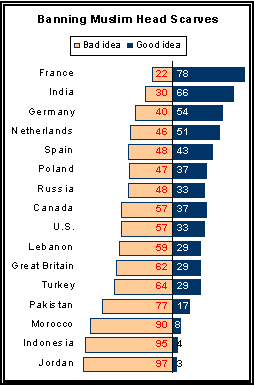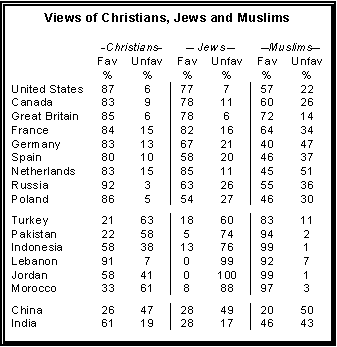The media have been very busy with all sorts of international crises (Iraq, the Middle-East..), but they have missed one major source of disagreement among nations: the Internet and yet this has the potential for major problems. What is at stake is no less than the administration of the net. This may come as a surprise to a lot of people, the common idea being that the Internet is completely uncontrollable and decentralized. That is actually one of the greatest myths of our time. Well, at least, it is partly a myth. If it is a huge and free collection of networks, it also needs a common set of communications standards to stay interconnected.
So in some critical areas, the Internet requires coordination and oversight. In short, those critical areas are - the domain names, the ".com," ".net," ".info," and others
- the Internet Protocol numbers, the up-to-12-digit codes, invisible to users, that every machine on the network needs to have in order to be recognized by other machines)
- the root servers, (nameservers which have responsibility for the . domain and know about which servers are responsible for the top-level domains. there ten root servers are operated from the United States and one each from Amsterdam, Stockholm, and Tokyo.
Basically, the governing body which is responsible for managing those aspects of the network is a non-profit private organisation named ICANN (Internet Corporation for Assigned Names and Numbers) based in California. This is not surprising if you consider that the Domain Name Server system was invented in the U.S.
ICANN [pronounced "I can"] is an organization officially independent of any government and staffed by an international crew. It was set up in 1998, by the Clinton Administration with the promise of autonomy from its oversight in 2006, and in November 2004 UN Secretary-General Kofi Annan appointed a 40-person working group to address questions of Internet governance.
But the current administration has recently announced a unilateral change of policy (yes, I know - hard to believe these days!) : the United States would retain its authority over ICANN, period.
This can be explained by the increasing importance of the internet in the economy which makes the US government more nervous about risking any change. In addition, the more countries clamored for power, the more the United States reconsidered its policy of relinquishing control. It has been increasingly seen as a matter of national security.
At the same time, as an article in Foreign Affairs pointed out,
Watching the United States go to war in Iraq despite global opposition, diplomats saw ICANN as yet another example of American unilateralism. What would prevent Washington, they argued, from one day choosing, say, to knock Iran off the Internet by simply deleting its two-letter moniker, ".ir," from the domain name system? Surely the Internet ought to be managed by the international community rather than a single nation.
Times change and technology evolves. This is no longer the time when the Internet was made and kept up by Woodstock-era American engineers and academics as it was for 30 years. On the other hand their philosophy of political and economic liberalism which led to openness on a technical level must be taken into account,
On the one hand it is true that the United States has taken a liberal approach in keeping with its liberal values but there is no guarantee that this will continue in the current unilateral philosophy of the Bush administration (whose values are, everyone will agree, quite opposed to the “Woodstock values"!).
On the other hand, there is no more guarantee that an intergovernmental system would continue on such a course either. When you see that the most vocal critics of the current system are China and Iran, you may heave reasons to question the motivations for change. Is the Internet governance possible for an institution like the UN that requires the consensus of at least the Security Council to function? As always, Europe is in the middle between US unilateralism and much stronger demands from other countries for multilateralism.
Last but not least, a deadlock on the issue might result into the emergence of competing standards which would threaten the stability of the system. That is why what will come out of the next meeting of the World Summit of the Information Society scheduled for November 16-18 in Tunisia will be interesting.
Foreign Affairs has a good grip of the clashing philosophies at stake:
Ultimately, what is playing out is a clash of perspectives. The U.S. government saw the creation of ICANN as the voluntary relinquishing of a critical source of power in the digital age; others saw it as a clever way for Washington to maintain its hegemony by placing Internet governance in the U.S. private sector. Foreign critics think a shift to multilateral intergovernmental control would mark a step toward enlightened global democracy; Washington thinks it would constitute a step back in time, toward state-regulated telecommunications. Whether and how these perspectives are bridged will determine the future of a global resource that nearly all of us have come to take for granted.
 except for some dark chocolate - irk! The reason why I was taken aback is that... I live in
except for some dark chocolate - irk! The reason why I was taken aback is that... I live in 















